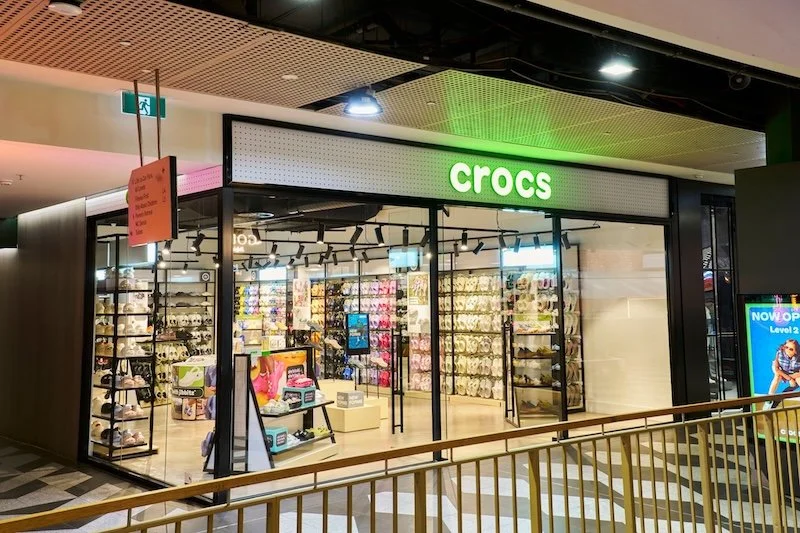Q&A: Sri Arardhi, Founder and CEO, WHISHWORKS
RTIH: Tell us about WHISHWORKS.
SA: We started the company 11 years ago, a team of five IT enthusiasts that wanted to transform the way people were managing disparate business data. Since then, we have grown into a multi-national IT consultancy, with over 280 employees and a presence in three continents.
Our focus remains on data, and we have built unique competences in MuleSoft integration and Big Data to enable enterprises around the world transform their business. Our customers have accessed and connected billions of data elements to gain insight, reduce effort and cost, achieve a competitive edge and innovate faster.
RTIH: How will you benefit from the NIIT Tech acquisition, announced earlier this year?
SA: NIIT Technologies shares the same values we do and, like us, they seek to enable their customers to drive business transformation - one of the many reasons why we believe that NIIT Technologies complements WHISHWORKS so well.
With the acquisition, we believe we can move faster and with more impact by leveraging NIIT Technologies’ scale, resources, and alliances. It unlocks significant potential for us to exploit new technologies and competencies, enter new markets and geographies, and deliver continued excellence and innovation at a larger scale within the MuleSoft integration and Big Data space.
RTIH: Who are your key retail clients?
SA: Although we have customers across different industries, in the past few years we have seen an increased interest from retailers looking to modernise their infrastructures and compete more effectively in the digital space.
Among our key clients have been High Street brands and e-tailers like Fat Face, Clarks, White Stuff, Oasis, Vision Express, L-Brands (Victoria Secret), Ted Baker, Stella McCartney, Wiggle and Costa Retail.
"Retailers need to become more real-time data and insight driven organisations and this can only happen if they modernise their IT ecosystem, remove data silos and become more agile and connected"
RTIH: What are the biggest challenges facing the omnichannel retail sector right now?
SA: Omnichannel has been a focus area for retailers for years. However, many of the originally physical-only retailers approached the concept by adding digital touchpoints - mobile applications, EPoS terminals, and e-commerce platforms, in isolation without rethinking their operation.
This is one of the reasons why retailers with a strong physical presence have been facing a downward spiral despite their best efforts to ride the digital wave. The fact of the matter is that disruptors are already reaping the benefits of new technologies like API-led connectivity, artificial intelligence, and robotic process automation, to offer innovative services, seamless customer journeys and personalised experiences, whilst adopting more agile and cost-effective operating models.
Many of the more traditional retailers are struggling with aging technologies that simply can’t keep pace with developments in digital and the increasing on-demand culture of consumers. At the same time, data is getting richer, faster and more fine-grained, but a lot of retail organisations are unable to capture and analyse it, missing out on important information.
IT departments spend a lot of time and effort trying to maintain legacy infrastructures and hand-code everything, taking the role of fire-fighters instead of enabling and driving transformation and innovation for the business. This technical debt has a ripple effect to the entire operation, with dated reports, data integrity issues, cumbersome processes, efficiency losses and inability to respond quickly to change.
RTIH: So how can retailers compete in this increasingly digitalised and fast-paced space?
SA: They need to become more real-time data and insight driven organisations and this can only happen if they modernise their IT ecosystem, remove data silos and become more agile and connected.
For today’s omnichannel retailers, being able to create this integrated environment where everything is connected, is paramount. From operational efficiencies and supply chain optimisation to accelerated time-to-market and improved customer experiences across channels, embracing new technologies and putting data at the centre of all business decisions, will give retailers the speed and agility to support business innovation and growth, while optimising total cost of ownership.
RTIH: The global supply chain is becoming more complex and competitive. How can retailers adapt and thrive here?
SA: Globalisation together with digitalisation is changing the very essence of commerce. Retailers have to compete against online market disruptors that deliver from everywhere in the world in one to two days and adhere to changing quality, work and compliance standards.
To level out the field, retailers need to leave behind traditional linear supply chains and adopt more modern global trade network models. Such models are designed around data and are largely enabled by new technologies that promote connectivity, speed, flexibility, and accuracy.
Connecting partners using real-time data gives visibility and actionable intelligence across the network. This way, more informed decisions can be made faster, and any change can be dealt with immediately as part of a dynamic, streamlined and automated process.
At WHISHWORKS we have helped many retail customers expose data in a controlled and secure way using API-led integration, which improved the flow and accuracy of information both internally and across their supply chains. These retailers are benefiting from significant purchasing, production and transportation economies, while at the same time they were able to transform their operational models and adopt more agile strategies.
RTIH: A set of technologies having an impact on optimising planning across the entire supply chain, is artificial intelligence and analytics. Could you tell us about the work you’re doing here?
SA: With AI, retailers can develop more granular and personalised segmentation strategies to better meet the demands of consumers by channel. They can also optimise processes, increasing speed and accuracy, while freeing up the time of personnel to deal with more business-critical issues.
We have recently implemented a pricing intelligence solution for one of the top supermarkets in the UK, that uses AI and machine learning to capture data on competitors’ products, prices, promotions, etc in real-time, across channels and regardless of format, be it text, image or video. The solution also uses a recommendation engine and a smart pricing model to compare prices and suggest what the most competitive pricing will be for a specific product and when. The retailer uses this solution not only to enhance its pricing strategy but also to negotiate better terms with their suppliers.
Advanced analytics is another technology that has made global trade networks attainable. It falls in the domain of data science and analyses vast amounts of internal and external data to project future trends, events, and behaviours. With advanced analytics, retailers gain a unique view of what will influence future demand and plan accordingly with much more accuracy than with more traditional methods.
From sales promotions to order planning and replenishment, it can have a huge impact across the supply chain, reducing forecasting error and improving the way the members of the supply chain measure and manage performance.










Continue reading…